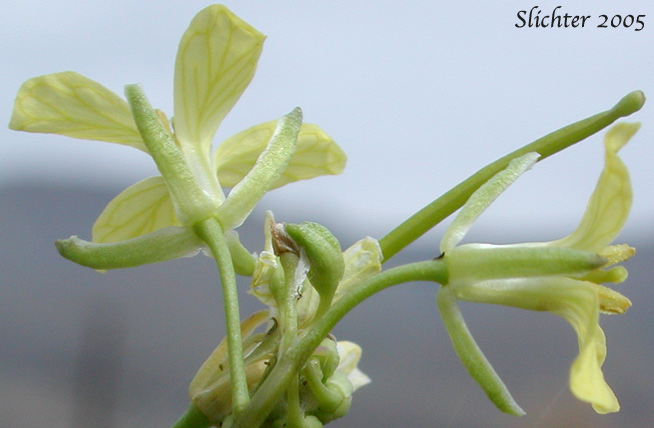 The
photo at right shows another image of the flowers of Jim Hill mustard as seen
about one mile east of Celilo, OR............mid March, 2005. Note the yellowish
veins in the petals.
The
photo at right shows another image of the flowers of Jim Hill mustard as seen
about one mile east of Celilo, OR............mid March, 2005. Note the yellowish
veins in the petals.
Jim Hill mustard is an annual or winter annual, which is found as a weedy species over much of the United States. It is an erect, freely branched plant with stiff hairiness near the base and smooth herbage above. Viewed from a distance, it has a bushy appearance. The stems range from 30-150 cm tall. The leaves are alternate, with the lower leaves coarsely divided into broad lobes or leaflets. The upper leaves are reduced in size with finer or narrower lobes or segments.
The inflorescence consists of numerous racemes at the ends of branches, with each flower having 4 sepals (about 4 mm long) and 4 pale yellow petals, 6-8 mm long. The seed capsules are long, linear siliques from 5-10 cm long.
Plants often break off at soil level when mature, tumbling across the landscape, scattering seeds with the wind.
Tumble mustard is common in small grain fields, rangeland, along roadsides, and in open disturbed areas.
Although it is a native of Europe, Jim Hill mustard is found over much of the United States.
It is found throughout the Columbia River Gorge between the elevations of 100'-3000'.